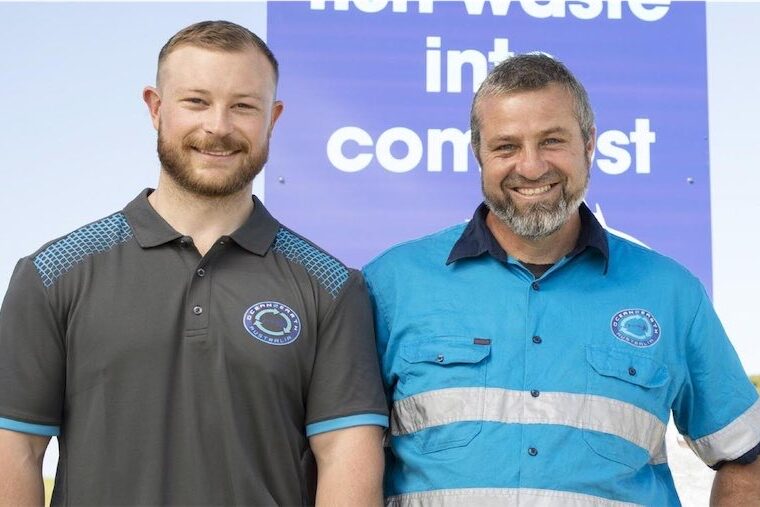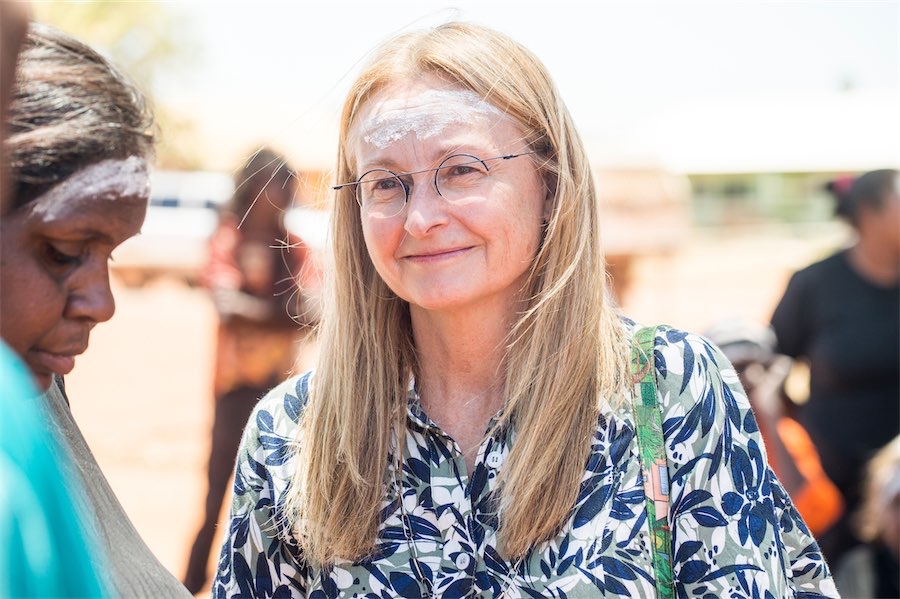
By Stephanie Gardiner
Brothers and keen anglers Kyran and Tim Crane were troubled by piles of fish guts being chucked out at their local boat ramp.
Amid the stinking mess of fishing waste headed for landfill, they saw a golden opportunity.
“We thought, ‘There’s a resource here. Why don’t we try and do something with it?'” Kyran Crane told AAP.
The Cranes founded Ocean2Earth, a company that collects waste from seafood processors and dedicated bins at boat ramps, diverting 500 tonnes from landfill per year.
Material such as fish heads and oyster shells are composted with pine bark at a facility in Merimbula, on the NSW south coast, pasteurised for six months and turned into a soil enhancer for gardens.
Running a circular business made sense to the Cranes, particularly when they considered the amount of marine waste in Australia and the widespread use of imported fertilisers.
“There’s got to be a way to try and have this become more mainstream and have people think about … using waste before they use virgin materials,” Mr Crane said.
The innovative business is one of many in the Bega Valley Shire, which aims to be the nation’s most circular regional economy by 2030, complete with a vision to transform its tip into a re-manufacturing centre.
Australia’s regions will need to take the lead on circular economies if the nation is to meet its net zero emissions targets, according to research by the Regional Australia Institute released on Wednesday.
Circular economies reuse and recycle materials – sometimes turning waste into energy – which reduces consumption and increases efficiency.
Country Australia will be the centre of the renewable energy transition, which needs to go hand-in-hand with circular economies, institute chief executive Liz Ritchie said.
“The transformation to a circular economy … will be fundamental for sustainable economic growth and helping to enable global efforts to reduce carbon emissions,” she said.
Though circular economies can create new jobs and products, there are limited pathways to help regional areas take up the practice, the research found.
Regions also face barriers including geographic isolation and small populations, which might deter investors.
The institute’s report recommends governments create a regional investment fund, along with state and territory-based authorities to co-ordinate and promote circular economies.
Despite the challenges, regions around Australia are creating their own sustainable economies.
On South Australia’s Limestone Coast one mill has been converting waste to energy for 70 years, while Launceston, in Tasmania, has a recycling program that turns polystyrene into pallets.
A recycling centre in Albury, on the NSW-Victorian border, turns 30,000 tonnes of waste into plastic bottles each year, increasing the amount of locally sourced and recycled plastic in Australia by two-thirds.
“The innovation communities are demonstrating in circularity should be celebrated and nurtured to ensure the regions can lead in this space,” Ms Ritchie said.
Who can be trusted?
In a world of spin and confusion, there’s never been a more important time to support independent journalism in Canberra.
If you trust our work online and want to enforce the power of independent voices, I invite you to make a small contribution.
Every dollar of support is invested back into our journalism to help keep citynews.com.au strong and free.
Thank you,
Ian Meikle, editor





Leave a Reply